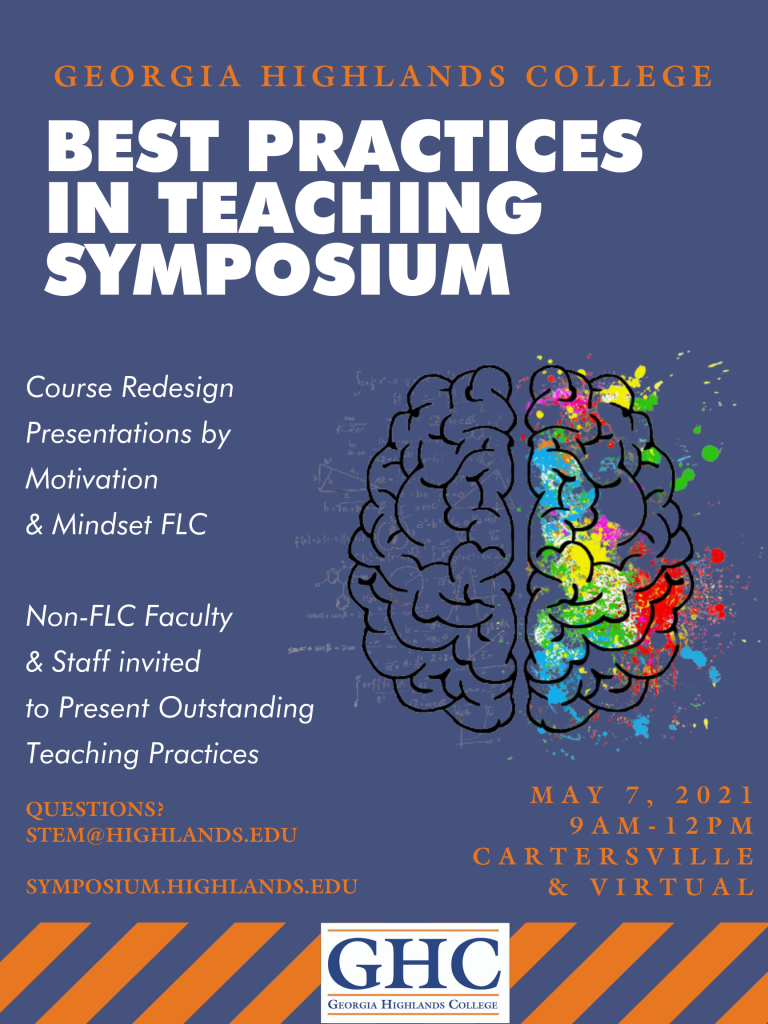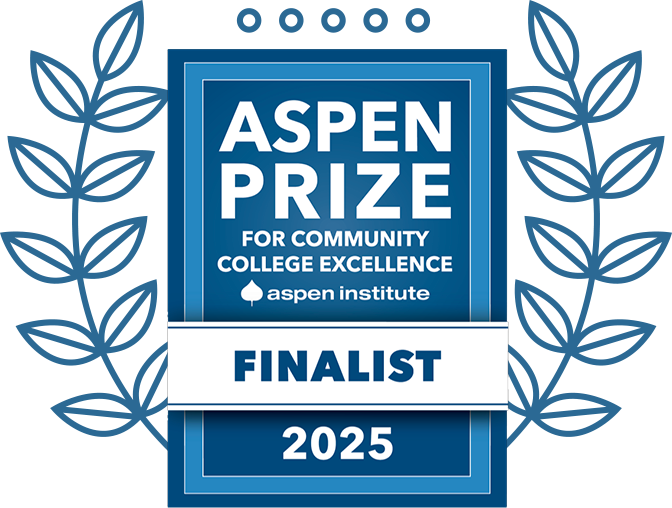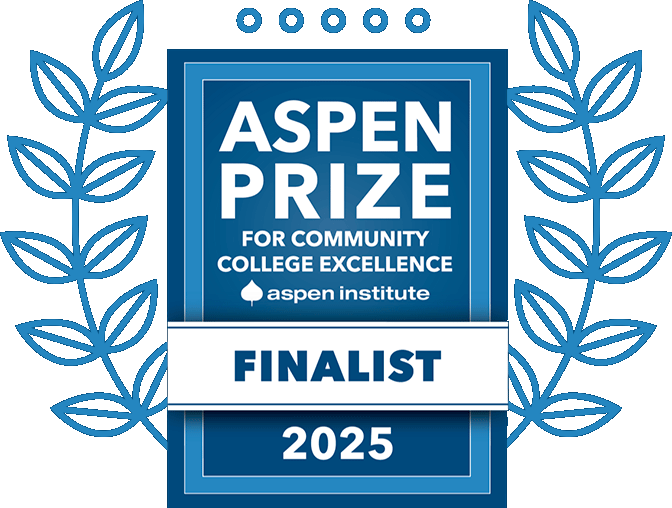Best Practices in Teaching Symposium

Georgia Highlands College
Best Practices in Teaching Symposium
Course Redesign Presentations by Motivation & Mindset FLC
Illustration of a brain with a colorful right lobe.
Non-FLC Faculty & Staff invited to Present Outstanding Teaching Practices
Questions? symposium@highlands.edu stem@highlands.edu
On MAY 7, 2021 from 9 AM to 12 PM CARTERSVILLE & VIRTUAL
GHC Logo
On Friday, May 7, 2021, members of the Motivation & Mindset Faculty Learning Community presented the products of their year-long efforts to redesign courses to increase student motivation and facilitate the development of a growth mindset.
Some non-FLC faculty also presented pedagogical strategies that foster student success.
The posters and presentation slide decks and their abstracts are available below.
Posters
Kristin Baumann | Minor change, massive impact: Strategic, Significant and Sequenced Learning Activities
Community Dental Health is part of the dental hygiene curriculum that extends the promotion of oral health and prevention of oral disease into the community. It is a multidimensional course that incorporates public health science and provides an opportunity for students to assess, plan, implement, and evaluate a preventive oral health program. The goals of this redesign are to utilize metacognitive strategies to motivate and engage learners, develop new laboratory assessments that are meaningful and connected to the student learning outcomes, create a balanced workload to prevent overwhelming the students, and scaffold the service-learning project. To achieve these goals, I audited the current learning activities and assessments, aligned the content and revised the student learning outcomes to ensure they are measurable. Further action entails reducing the lecture time in favor of more interactive laboratory sessions, creating content relative learning activities, and sequentially connecting the course content to the service-learning experience.
Michelle Boyce | Online Redesign-Focused on Creating Meaningful Experiences
Online courses can be challenging for students, especially when delivered asynchronously. A challenge I encounter is creating an environment where the students have a sense of value, purpose, and belonging. In Fall 2020 and Spring 2021, I participated in a Motivation and Mindset Faculty Learning Community in order to redesign the online Healthcare in Diverse Cultures course to create more meaningful experiences for the students. This poster presentation provides information related to the course redesign process, as well as successes and pitfalls of the first round of the redesign. I plan to continue to redesign the course for the summer semester.
Cynthia Davidson | Asking the Right Questions
The rampant propaganda surrounding the Covid pandemic and recent elections reinforced my long-held concern that most citizens need to do a better job of vetting the information they consume. A good way to do this is by systematically considering/vetting all aspects of a source’s rhetorical situation, which is one of the SLOs of English 1101. Blooms Taxonomy, introduced at the beginning of the course, should help students learn the types of questions necessary to fully vet informational sources. My project in this FLC is to use Blooms as a semester-long theme of critical inquiry. Writing assignments progress in intellectual rigor throughout the course, so helping students to recognize the higher-level questioning necessary to confidently assess source materials is a worthy goal. As part of this project, I have added a “Both Sides” analysis assignment, which requires students to vet the rhetorical situation of opposing viewpoints of a single news story.
Marla Means, Susanna Smith, & Melanie Vincent | Taking AIM: Creating Asynchronous Interactive Modules for the Library
The Library Information Literacy Group is creating interactive content for each of the Library’s six learning objectives. Because librarians are not involved with every class, we wanted rigorous and comprehensive content which could be administered in any course at the point of need. Based on faculty feedback, we started with APA 7. To create our first module, we chose a general layout that can be adapted for future modules, used Google Sites to host the content, and LibWizard to create the quizzes. The final product is an interactive APA module that takes students about 30 minutes to complete and provides a downloadable certificate of completion. Finally, we tested the module’s usability and accessibility before rolling it out to students. Please stop by our poster to learn about the process and to see how you can use the module in your classes.
Banhi Nandi | My Journey from Fixed to Growth Mindset
This poster is all about the application and integration of different motivating and reflective learning strategies that engaged my students, rekindled a love for learning in my Microbiology class, and helped me during my endeavor to change the students’ fixed mindset into growth mindset. This poster also reflects how the yearlong Motivation and Mindset Faculty Learning Community at GHC turned my gears and had me reflecting on the assessments and assignment I have previously used and pushed me to think about how I could better assess students and support their engagement with the topic beyond the assessment. The strategies I have previously used but failed to engage students (e.g., using SQ5R Technique directly), and some new or modified version of previous assignments (e.g., Instead of SQ5R, students were given selected vocabulary words to build a concept map which is an implementation of the Blooms’ Taxonomy) are exposited in this poster.
Christina Wolfe | Using Structure to Promote Agency: Mindset Interventions for Learner-Centered Sociology
Multiple-choice and essay tests are the most common exam formats used to measure student understanding of sociology in college courses. While multiple-choice questions allow for a wider sampling of the content, greater efficiency and increased scoring reliability, they also emphasize recall and encourage guessing, both linked to Dweck’s (2006) construct of “fixed mindset”. Constructed-response essays allow students to generate original responses which show greater depth of understanding and a record for assessing student thought processes, encouraging “growth mindset”. However, students report feeling less comfortable when taking all-essay exams. I present interventions used to bridge this gap and encourage greater student mastery of sociology content and agency-based learning through the use of multiple assessment formats in two introductory-level sociology courses.
Presentations
Michelle Abbott | Cooking Up Student Success: Metacognition and Other Important Ingredients
There are many reasons students struggle in an online course but losing a third of them each semester to withdrawals or failure was not acceptable to me. I started seeking a “magic bullet” for student success. In Fall 2020, I “TILTed” all the course assignments, rewrote my syllabus in student-focused language, and offered students more choice regarding the literature they read in my British Literature II course. My pass rate decreased. I responded by rebuilding my Spring 2021 course on the fly to include the use of Perusall and an emphasis on metacognition. The results thus far have been astounding. Future semesters may tell a different story, but at this point, it appears I have found a magic recipe instead of a magic bullet. In this session, I will share the ingredients in this recipe and a shopping list of resources that helped me cook up student success this semester.
Charles Grimm | Encouraging Growth in Bloom’s: Reflection and Taxonomy as Vehicles for a Growth Mindset
Ask most students whether they are “math people” or “English people,” and many will have a quick answer ready for you. This presentation will provide attendees with an approach to blend direct instruction of Bloom's Taxonomy and reflective writing throughout a semester's course plan to help students see that moving beyond any perceived natural proclivity remains an option. I will discuss how I have begun using techniques from McGuire's Teach Your Students How to Learn and recent scholarship from writing studies to revise my ENGL 1102 course. Student reflections from before and after implementation will provide data to demonstrate student uptake of these concepts. Participants will be asked to write a brief reflection on this presentation before the Q&A portion to embody the practice and increase participation in the ideas.
Oris Guillaume | Metacognition: Inspiring Students to do their Best
The aim of this presentation is to help students to reflect on one’s personal habits, growth in knowledge, and ways of learning. Also, to inspire students to do their best by using the concept of metacognition in the classroom, the assignment, and exams. Furthermore, I will encourage my students to monitor their learning by having them answer the following questions: What? How? and Why? After the presentation, students will be able to introduce some strategies for incorporating metacognition into their own learning.
Regina Gupta | Making Dental Materials Matter
Course Revised: DHYG 2420 Dental Materials
My primary motivation for this course design was a desire to ensure that the course content, learning activities, and assessments were aligned and that students were given a positive learning experience, because this course has been taught by multiple instructors in recent years. I also wanted to ensure that the course content led to student competency in all areas relevant to our program accreditation standards. Finally, I wanted to determine if we could incorporate more active learning strategies to boost student motivation. In this presentation, we will discuss my review of existing course content, considerations for course redesign, changes made in the course redesign, connections between the course redesign changes and the teaching strategies offered by Dr. Saundra McGuire in Teach Students How to Learn (2015), and the desired outcomes (including a teaching experience from a course taught in Spring 2021).
Sharryse Henderson, Brandy Rogers, & Erika Walczak | Engaging Online Students: Small Changes, Big Impact
Online learning presents unique challenges when compared to a traditional classroom because students are separated from their instructor and peers by a computer screen. How can we engage our students in the content, learning activities, and assessments? How can we prevent feelings of frustration or isolation and keep them motivated? These questions are frequently asked by online faculty looking to maintain the same levels of engagement they see and feel in their face-to-face classrooms. In this presentation, you will be introduced to small, incremental changes you can make in your online course design and learning activities to help foster community in your online courses, overcome motivational barriers to student engagement, and produce student learning outcomes equivalent to or better than those of in-person courses.
Althea Moser | Best Practices for Online Discussions
Meaningful engagement in discussion assessments in an online environment can be challenging for students. This was made apparent during the new HSCI 3504 course, which led to a redesign of the discussion forums for the Spring 2021 course. The updated discussion assessments sought to encourage a growth mindset among students by setting high expectations through clear instructions, creating discussion prompts that increased the value and significance of the course content, and updating the grading rubric so that students had an increased opportunity to be successful. Data collected during the course showed that the changes increased student engagement, set the foundation for meaningful interactions, and benefited student learning outcomes.
Ryan O’Connor | Crafting a Better General Chemistry Course
“This is how I learned it” is a frequent argument against updating courses to suit modern perspectives on student learning, and one that must be actively resisted throughout an instructor's career. Previously, my courses have been an assemblage of components from various other instructors from which I extracted the most suitable components or those I found most engaging. In this year, I have engaged in two cohorts (New Faculty Academy and the Motivation and Mindset Summit) to convert this amalgam into a course deliberately grounded in modernized concepts of student learning. This presentation reviews the changes made in design and delivery and describes the measured results in the Spring Semester of 2021.
Justin Polizzi & Matthew Summerlin | Design of Biochemistry (CHEM3500) to Promote and Reward Growth Mindset
Biochemistry (CHEM3500) is a newly approved offering at GHC, providing an opportunity for fresh course design by those who will be serving as instructors. Design has been strongly influenced and scaffolded by student growth and motivation mindset models advocated in New Faculty Academy and Faculty Learning Communities supported by the GHC Center for Excellence in Teaching and Learning. The course begins with a review of syllabus elements aligned to growth, including heavy weighting of numerous participation activities, homework, and quizzes that emphasize sustained effort throughout the semester. A discussion of fixed and growth mindsets has been established and will be followed by students watching a presentation by Saundra McGuire after exam 1 and submitting a reflection on their own study habits and what may need to change before future exams. Prior to the final exam, students can retake electronic assignments to review concepts and show cumulative growth over the semester.
Marta Sanderson | Stewarding Student Success in the ASN Nursing Education Program through Metacognition
The objectives of my presentation are to (1) share with the learning community metacognition strategies for non-traditional students, (2) present student and faculty toolboxes for academic success in an ASN program using metacognition strategies, and (3) share and report the ASN program redesign to meet nursing student academic needs. I will first state and describe current academic and metacognition need for facilitation and the circumstance of GHC ASN program students. Next, I will present contents of Metacognition, Time-Management, and Study Tool Student and Faculty Toolboxes. Finally, I will present plans for implementation.
Erika Walczak | Student Study Strategies Project
My presentation will cover a project I created to help students focus on how and when to study. This is especially important in STEM classes that are content heavy. This is a 4-part project that allows for 2 opportunities for the student to reflect on their study habits in correlation to grades earned on exams 1 and 2. The additional benefit of this project is that the student has a project due in the first half of the semester, not at the end of the semester.
Kathy Young | Metacognition and Learning Strategies for Class Presentation
I developed a Metacognition 50-minute presentation (like Dr. McGuire's) for my MATH 1001 class to encourage these students to explore different ways to study and achieve higher scores in math. I also gathered and organized material (list of learning strategies, mindset material, study cycle pacing, time management plan, etc.) to post in D2L for the students to use in developing their new study plan.


